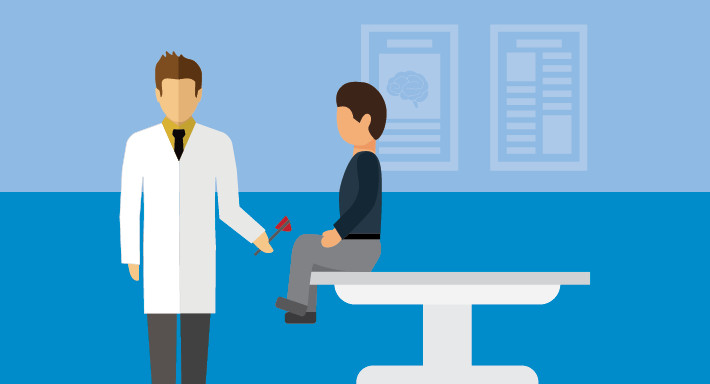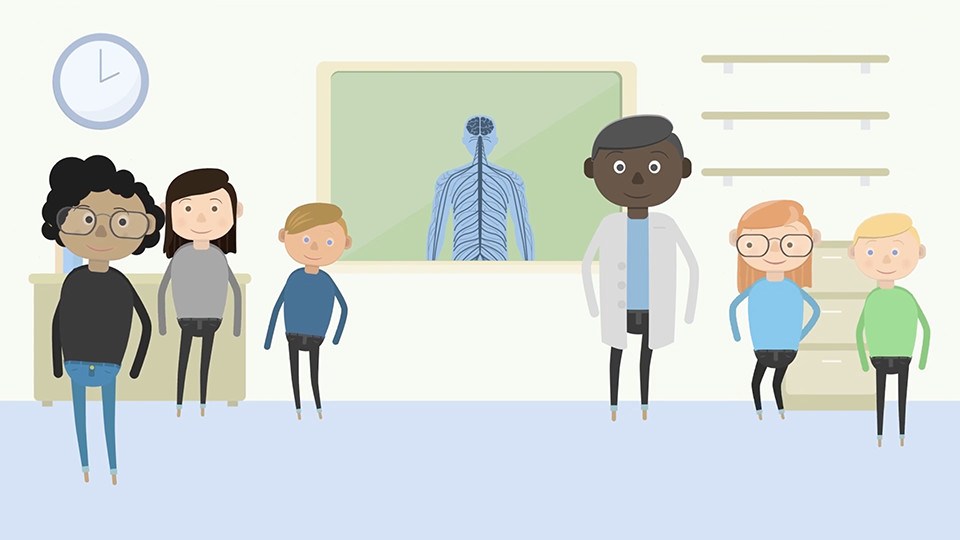A neurology doctor, or neurologist, is a medical professional who specializes in the diagnosis, treatment, and management of disorders affecting the nervous system. This intricate system encompasses the brain, spinal cord, peripheral nerves, and muscles. Neurologists are experts in a wide range of conditions, from common ailments like migraines to complex diseases such as Alzheimer’s disease, epilepsy, stroke, multiple sclerosis, and Parkinson’s disease. They play a crucial role in helping patients manage these conditions and improve their quality of life.
What a Neurology Doctor Does
Neurologists are highly skilled in diagnosing neurological disorders. Their expertise lies in understanding the complexities of the nervous system and how disruptions can manifest in various symptoms. The diagnostic process typically involves a comprehensive approach:
Diagnosis Through Neurological Examination
A cornerstone of a neurologist’s practice is the neurological exam. This detailed evaluation involves taking a thorough patient history and performing a physical examination focused on neurological function. This includes assessing:
- Mental Status: Evaluating cognitive functions like memory, attention, and language.
- Vision: Testing eye movements, visual fields, and pupillary responses.
- Speech: Assessing speech clarity, fluency, and comprehension.
- Strength: Evaluating muscle strength in different parts of the body.
- Sensation: Testing the ability to feel touch, pain, temperature, and vibration.
- Coordination: Assessing balance and fine motor skills.
- Reflexes: Testing reflexes to assess nerve pathways.
- Gait: Observing walking patterns and balance.
This meticulous examination often provides crucial clues for diagnosis, even before advanced tests are conducted.
Utilizing Neurological Tests
To further investigate and confirm diagnoses, neurologists utilize a range of specialized tests. These may include:
- Computed Tomography (CT) or Computer-Assisted Tomography (CAT) scans: These imaging techniques use X-rays to create detailed cross-sectional images of the brain and spinal cord, helping to identify structural abnormalities.
- Magnetic Resonance Imaging (MRI): MRI uses strong magnetic fields and radio waves to produce even more detailed images of the brain, spinal cord, and surrounding tissues, allowing for the detection of subtle lesions or changes.
- Electroencephalography (EEG): EEG measures electrical activity in the brain using electrodes placed on the scalp. It is particularly useful in diagnosing epilepsy and other seizure disorders, as well as evaluating sleep disorders and brain function.
- Nerve Conduction Studies and Electromyography (NCS/EMG): These tests assess the function of peripheral nerves and muscles. NCS measures how quickly electrical signals travel along nerves, while EMG evaluates the electrical activity of muscles, helping to diagnose nerve and muscle disorders.
- Lumbar Puncture (LP) for Cerebral Spinal Fluid Analysis: Also known as a spinal tap, LP involves collecting a sample of cerebrospinal fluid (CSF) from the spinal canal. Analyzing CSF can help diagnose infections, inflammation, and other conditions affecting the brain and spinal cord.
Performing Neurological Procedures
While neurologists are not surgeons in the traditional sense like neurosurgeons, they do perform a variety of procedures as part of patient care. Common procedures include:
- Lumbar Punctures (LP): As mentioned above, for diagnostic purposes and also sometimes for therapeutic reasons, such as relieving pressure in certain conditions.
- Nerve Conduction Studies and Electromyography (NCS/EMG): Both for diagnostic and monitoring purposes.
- Botulinum Toxin Injections: Neurologists may administer Botox injections to treat conditions like migraines, dystonia (muscle spasms), and spasticity.
Some neurologists pursue subspecialty training to perform more advanced procedures, such as:
- Intraoperative Brain and Spine Monitoring: Monitoring neurological function during surgery to prevent damage.
- Autonomic Testing: Evaluating the autonomic nervous system, which controls involuntary functions like heart rate and blood pressure.
- Endovascular Procedures: Specialized procedures performed within blood vessels, including angiograms to visualize blood vessels in the brain and coiling of aneurysms to prevent rupture.
- Skin and Muscle Biopsies: Obtaining tissue samples for diagnosis of certain neurological conditions.
It’s important to note that while neurologists and neurosurgeons work with similar parts of the body, their roles are distinct yet often collaborative. Neurologists primarily focus on non-surgical treatments and medical management of neurological conditions, while neurosurgeons specialize in surgical interventions. They frequently collaborate to provide comprehensive care for patients.
[  Circles with people graphics in them, earth behind them
Circles with people graphics in them, earth behind them
alt=”Global neurology network connecting people and expertise for brain health.” ]
Pediatric Neurology: Specialized Care for Children
Within neurology, there is a subspecialty dedicated to children: pediatric neurology. A pediatric neurologist focuses on diagnosing and treating neurological disorders in infants, children, and adolescents, from newborns through the teenage years. They are trained to address the unique neurological conditions that can affect developing brains and nervous systems.
While there is some overlap with the conditions treated by adult neurologists, such as epilepsy and migraines, pediatric neurologists also manage conditions more specific to children, including:
- Neurogenetic Disorders: Genetic conditions affecting the nervous system.
- Developmental Problems: Neurological issues that impact a child’s development, such as cerebral palsy and intellectual disability.
- Childhood Stroke: Stroke occurring in children, which can have different causes and presentations than in adults.
- Neuromuscular Disorders: Conditions affecting the nerves and muscles, such as muscular dystrophy.
[  Three people graphics, one wearing a SIGN shirt. Blank space for YOU
Three people graphics, one wearing a SIGN shirt. Blank space for YOU
alt=”Become a neurologist, join a medical specialty focused on the nervous system.” ]
The Importance of Neurology Doctors
Neurology is a vital field of medicine. Neurology doctors play a critical role in diagnosing and managing a vast spectrum of conditions that impact the nervous system, significantly affecting people’s health and well-being. From alleviating chronic headaches to managing complex neurodegenerative diseases, neurologists are dedicated to improving the lives of their patients through expert diagnosis, personalized treatment plans, and ongoing care. If you are experiencing symptoms that you believe may be neurological, consulting with a neurology doctor is the first step towards understanding your condition and receiving appropriate care.
[  Doctor in white coat graphic holding reflex hammer, child sitting on exam table
Doctor in white coat graphic holding reflex hammer, child sitting on exam table
alt=”Neurology career involves doctor examining child patient’s reflexes with hammer.” ]
[  Illustration: doctor in white coat, nervous system on board, kids learning
Illustration: doctor in white coat, nervous system on board, kids learning
alt=”Neurology makes a difference by providing solutions for everyday neurological problems.” ]
